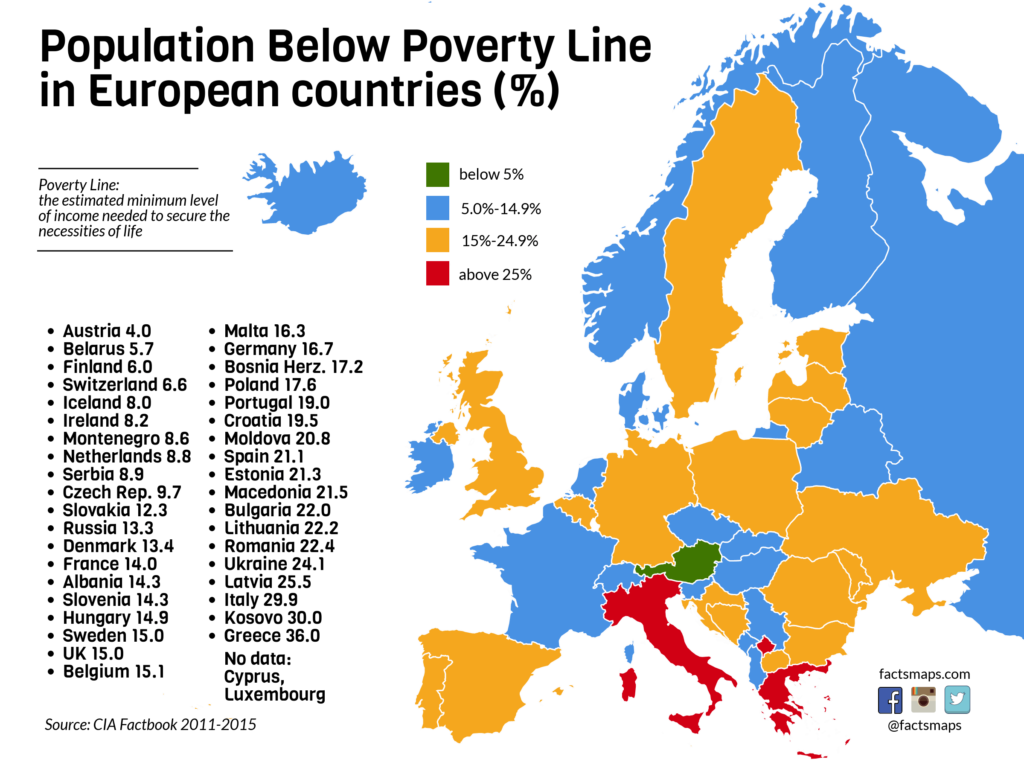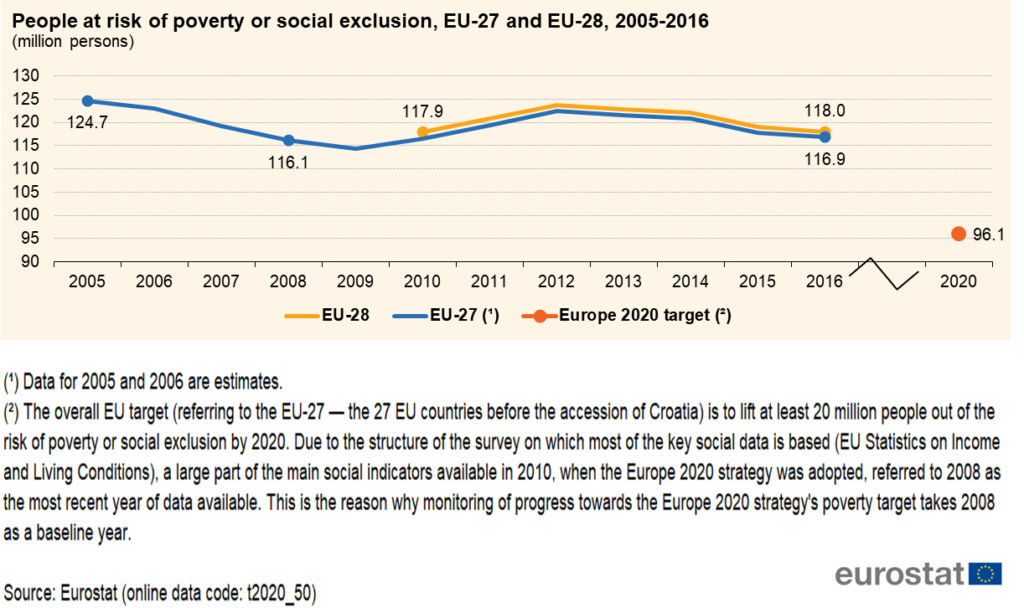New Bulgarian Bill on Religion Brought Back to Parliament for Corrections
The new bill on religion was voted in Bulgaria on the last working day of 2018. As we celebrated the holidays thinking the drama was over, yet a new bill was being drafted. At the beginning of the parliamentarian season, on January 31, 2019 several new corrections were introduced to the just voted-in bill as follows:
- $10,000,000 in stipends to be given to the Eastern Orthodox in the form of salaries
- A similar type subsidy in the amount of $400,000 will be provided to the Muslim confession
- A one time tax amnesty would be given to various confessions for prior debt toward the Bulgarian state. In the case of the Muslim confession, this one time amnesty has been calculated at $8,000,000. The amnesty amount for the Eastern Orthodox Church is yet to be calculated due to the thousands of churches and monasteries they occupy across the country.
These are just a few of the changes being proposed currently. More will follow as the bill goes for discussion on the Parliament floor. But one thing jumps out from the text that is worth mentioning. The large government “stipend” is designated to the “Orthodox and Muslim confession” (singular). Such in Bulgaria does not exist. Yet!
If the authors wanted to indicate two separate religions, just like in the English language more so by Bulgarian grammar rules, they should have used the plural confession(s). The phrase is repeated several times in the document eliminating the possibility of a grammatical error or a simple typo. If the new bill purpose to merge Orthodoxy and Islam under the same state budget will become clear soon.
Europe 2020 indicators – poverty and social exclusion among Pentecostals
Europe 2020 indicators – poverty and social exclusion
In 2019, the number of people at risk of poverty or social exclusion in the EU was still higher than in 2008, although the Europe 2020 target is to reduce by 20 million by 2020.
8 Poorest Countries In Europe:
- Kosovo –
- Albania – …
- Bosnia and Herzegovina – …
- Republic of Macedonia – …
- Serbia – …
- Belarus – …
- Montenegro…
- Bulgaria
12 Facts About Poverty in Europe
-
- One in four Europeans experiences at least one form of poverty. Forms of poverty include income poverty, severe material deprivation, very low work intensity and social exclusion. Income poverty is the most common form of poverty in Europe, affecting 17.3 percent of people. One hundred eighteen million people (23.5 percent) of the EU-28 population were at risk of poverty or social exclusion, with 43 million of those not able to afford a quality meal every second day. This is known as severe material deprivation.
- Social exclusion is the lack of social resources and rights available to most people as a result of poverty or being part of a minority group. In 2015, more than a third of the population was at risk of poverty or social exclusion in three EU countries:
41.3% in Bulgaria,
37% in Romania and
35.7% in Greece.
The countries with the lowest risk were the Czech Republic at 14% and Sweden at 16%.
- The poverty line is the minimum level of income needed to secure the necessities of life and differs greatly for each European country. An average of 9.8 percent of people in the EU live below the poverty line. The country with the lowest amount of people living below the poverty line is Austria at four percent, and the highest is Greece at 36 percent. This is one of the 12 facts about poverty in Europe that reveals the enormous gap between wealthier and poorer countries in Europe.
- The unemployment rate in Europe is only around seven percent. According to Eurostat, some countries rank above this average with Greece at 20.9 percent and Spain at 16.3 percent. In 2016, 48.7 percent of people who were unemployed were at risk of poverty. Unemployment also makes people more at risk of severe material deprivation.
- Poverty in Europe is not limited to those who are unemployed. In 2015, 7.7 percent of the EU population was at risk of poverty despite working full-time, with men more at risk than women. Romania has Europe’s highest risk of in-work poverty with a rate of 18.9 percent. Spain and Greece follow with 13.1 percent and 14.1 percent, respectively. Additionally, the in-work poverty risk has increased from 8.3 percent in 2010 to 9.6 percent in 2016.
- Women have a higher risk of poverty in Europe. The number of women suffering from poverty or social exclusion in the EU was 1.9 percent higher than men in 2015. Additionally, young people between the ages of 18 and 24 are more at risk of poverty or social inclusion with a risk of 30.6 percent.
- In 2015, almost 50 percent of all single parents in Europe were at risk of poverty or social exclusion, which is twice as much as the risk for any other household.
- Foreigner-born residents (39.2 percent) are at a higher risk of poverty or social exclusion than native citizens (21.6 percent). In Italy, the number of foreigners at risk is particularly high at 55 percent.
- Children below the age of 18 also have a high rate of poverty or social exclusion, at 47 percent, with 26 million children in the EU living at risk of poverty or social exclusion. Child poverty in the U.K. has reached its highest level since 2010, reaching 30 percent.
- Even with the economy improving, one in three people in Spain still lives in poverty, which is defined as living on €8,000 or less per year. Children are also at a higher risk of poverty in Spain. In Andalusia, a Spanish province, child poverty reached 44 percent.
- Italy has the most people at risk of poverty in Europe. This amount rose from 15 million to 18 million people since the 2008 crisis, with over 4 million people living in absolute poverty.
- The heads of government in the EU adopted the Europe 2020 Strategy in 2010 to address poverty. The goal of this was to lift at least 20 million people out of the risk of poverty and social exclusion by 2020. Unfortunately, this goal has not been reached and the situation has gotten worse instead of better. There has been an increase in poverty in the EU over the past years. In 2009, there were 117 million people and 27 EU member states at risk of poverty or social inclusion in the EU Since then, there has been an increase of 1.6 million people and one country.
Although these 12 facts about poverty in Europe may introduce a growing problem, the EU along with the European governments are taking active steps to fight this problem. Several countries’ economies are now expanding and showing improvement since the crisis. This includes Spain’s economy, which now has a predicted growth of 2.5 percent in 2018. It is imperative to continue to provide foreign aid and assistance in order to ensure that U.S. allies continue to grow and move past the repercussions suffered after the crisis.
2020 Vision for Bulgarian Evangelical Churches Abroad
 Over a decade ago, after publishing Bulgarian Churches in North America: Analytical Overview and Church Planting Proposal for Bulgarian American Congregations Considering Cultural, Economical and Leadership Dimensions, we purposed to explore the possibility of implementing the church planning program among Bulgarian Diasporas in various destination countries of migration.
Over a decade ago, after publishing Bulgarian Churches in North America: Analytical Overview and Church Planting Proposal for Bulgarian American Congregations Considering Cultural, Economical and Leadership Dimensions, we purposed to explore the possibility of implementing the church planning program among Bulgarian Diasporas in various destination countries of migration.
With this in mind, we carried the vision for establishing 20 Bulgarian churches outside of Bulgaria by the year 2020. Cyprus, the United Kingdom and Canada were among the first to successfully implement our program. Bulgarian migrant communities in France, Italy and especially Spain and Germany followed with great enthusiasm – there are 7 Bulgarian evangelical churches active in Span today, and 18 in Germany.
Of course, not all parts of the program proved to be efficient. The program’s modules and training that was implemented, however, have produced 47 strong church plants thus far and the number is growing every month. The program proposed has been confirmed by the leadership we have received from the Holy Spirit. Our commitment to seize the opportunity and work toward adding more Bulgarian churches by the year 202 has by far surpassed all expectations.
Bulgarian Evangelical Churches in the European Union (2019 Report)
- Bulgarian Evangelical Churches in Germany
- Bulgarian Evangelical Churches in Spain
- Bulgarian Evangelical Churches in England
- Bulgarian Evangelical Churches in France
- Bulgarian Evangelical Churches in Belgium
- Bulgarian Evangelical Churches in Italy
- Bulgarian Evangelical Churches in Cyprus
- Bulgarian Evangelical Churches in Crete
Bulgarian Evangelical Churches in America (2019 Report)
- Bulgarian Evangelical Churches in Chicago (2019 Report)
- Bulgarian Evangelical Churches in Texas (2019 Report)
- Bulgarian Evangelical Churches – West Coast (2019 Report)
- Atlanta (active since 1996)
- Los Angeles (occasional/outreach of the Foursquare Church – Mission Hills, CA)
- Las Vegas (outreach of the Foursquare Church – http://lasvegaschurch.tv)
- San Francisco (occasional/inactive since 2012, Berkeley University/Concord, CA)
Bulgarian Evangelical Churches in Canada (2019 Report)
- Toronto (inactive since 2007)
- Toronto/Slavic (active since 2009)
- Montreal (occasional/inactive since 2012)
CURRENTLY INACTIVE CHURCHES/CONGREGATIONS:
- New York, NY (currently inactive)
- Buffalo, NY (occasional/inactive)
- Jacksonville, FL (occasional/inactive since 2014)
- Ft. Lauderdale / Miami (currently inactive)
- Washington State, Seattle area (currently inactive)
- Minneapolis, MN (occasional/inactive since 2015)
READ MORE:
- First Bulgarian Church in Chicago Opened in 1907
- Gateway Cities for Bulgarian Evangelical Churches
- How to Start a Bulgarian Church in America from A-to-Z
- Unrealized Spiritual Harvest as a Paradigm for Cross-Cultural Ministries among Migrant and Disfranchised Ethnic Groups in America Today
The LOSS of IMAGINATION
In the 1950s kids lost their innocence.
They were liberated from their parents by well-paying jobs, cars, and lyrics in music that gave rise to a new term —the generation gap.
In the 1960s, kids lost their authority.
It was a decade of protest—church, state, and parents were all called into question and found wanting. Their authority was rejected, yet nothing ever replaced it.
In the 1970s, kids lost their love.
It was the decade of me-ism dominated by hyphenated words beginning with self.
Self-image, Self-esteem, Self-assertion….It made for a lonely world. Kids learned everything there was to know about sex and forgot everything there was to know about love, and no one had the nerve to tell them there was a difference.
In the 1980s, kids lost their hope.
Stripped of innocence, authority and love and plagued by the horror of a nuclear nightmare, large and growing numbers of this generation stopped believing in the future.
In the 1990s kids lost their power to reason.
Less and less were they taught the very basics of language, truth, and logic and they grew up with the irrationality of a postmodern world.
In the new millennium, kids woke up and found out that somewhere in the midst of all this change, they had lost their imagination. Violence and perversion entertained them till none could talk of killing innocents since none was innocent anymore.
25 Years in America: The CONFESSIONS
I came to the United States 25 years ago – exactly to the date. Quarter of a century of my 30 years of ministry I’ve spent preaching here.
Naturally, I’ve seen a few things change. I am not talking just about political correctness, cheap import quality or long distance customer service. Yes, I can say this because I am an immigrant too. But in my line of work, I made my mind a long time ago. No Made in China sermons or creative commons mini series downloaded from the internet. When I preach, I will give it my best so help me God.
Having said this, I wish I would have lived in States in the late 70s. Big cars, cheaper gas, cleaner foods, much clearer standards and maybe even a much simpler life. All made in America. And a very different type of people and churches. But we all come to this world when it’s our time…
I landed in New York late one cold and snowy night. Being barely 19 at the time, I had recently watched Home Alone: Lost in New York. Landing over the brightly lit Manhattan was just like in the movie. The feeling was indescribable.
Not so much after going through customs. The officer, a professing Muslim as he told me, took one quick look at my passport before giving me a long lecture of all the dangers I was facing by enrolling in the Bible College named on my entrée visa. I disregarded his words, at least at the time. But they haunted me often for the next couple of years.
The heavy snow storm halted all flights out of the city and we had to spend the night in the Big Apple. Waiting for the hotel’s shuttle at JKF’s lobby, I had my second peculiar encounter of the evening. A well dressed lady, obviously a New Yorker, waiting alongside picked up a conversation hearing it was my first visit to the States. She welcomed me with the words that everyone in America has come from somewhere else. She then gave me a dime, which I still keep somewhere, showing the words inscribed on the back side “E pluribus unum,” the meaning of which I knew from my studies in Latin.
The next morning I had my first American breakfast right before flying over to Charlotte. The South welcomed us with some of its coldest weather ever recorded. It was 1994 and 15F. Some even said I brought the winter with me from the old country. And so my journey began.
At first, dreams started to come to reality fast. Many dreams – too many to even count. For a short time, life was a highway. A few trials later, I sobered up. The high places of life are still reached via the narrowest of roads. And through a personal walk. Can’t get there driving fast and furiously or piggy back ridding someone else’s dreams.
Because just when you have it all, there comes a time for losing. I lost friends I knew and enemies I didn’t know I had. And I learned to tell my story. Most of it is told in my upcoming book Confessions. Not merely in the way I know it, but in a way where others can understand it. And use it.
As I was getting ready to commemorate this anniversary, along with the passing of my faithful father and my praying grandmother this time 20 years ago, I lost another friend. A praying man, a faithful supporter of our ministry, a Man who walked straight and stood up for what was right – a legacy in the minds of many. I told his dear family at the grave site that a generation is passing. Their mantle has been thrown upon us, so we may become carriers of their legacy.
After 25 years, this is our time! We are here and now, so generations may come after us to a new reality, new place in history and new world. The world we’ve dreamed of…
IN MEMORIAM: Samuel Thomas “ST” Scroggs
Samuel Thomas “ST” Scroggs, 90, passed away peacefully at his home Thursday, January 10, 2019. He was born in Seneca August 8, 1928, a son of Paul H. and Ethel Rose (Hughes) Scroggs.
His livelihood was in textiles for 45 years. He worked hard to provide for his family. ST loved being a farmer. Nothing brought him more joy. His wife, Rev. Evelyn Edgar Scroggs was an ordained minister and ST was a co-minister with his wife, supporting her in her ministry. He enjoyed hunting, fishing, watersports when he was younger, hiking and camping. He loved his senior social group at the Newry Church of God.
ST is survived by two daughters, Phyllis Durham and husband Bill of Easley and Marcia Harrell of Gastonia, NC; a son, Greg Scroggs and wife Marilyn of Anderson; son-in-law, Raymond Duane Harrell; grandchildren, Matthew Nix and wife Lindsay, Brandon Harrell and Morgan Floyd, Andrew Harrell, Weston Scroggs and wife Caitlan, Kyle Scroggs, and nephew, Tommy Sluder; great grandchildren, Colbi and Jaxon Scroggs, and Mattie, Evie and Olin Nix; and many nieces and nephews. In addition to his parents, he was predeceased by his wife of 54 years, Evelyn; sisters, Irene Barton, Juanita Vickery, Ruth Johnson, Charlene Leopole, Ava Brush, and Betty Owens.
Funeral services will be held 2:00 PM Monday, January 14 at the Newry Church of God, 234 Newry Road, Seneca. Interment will follow at the Oconee Memorial Park.
The family will receive friends 2-4:00 PM Sunday, January 13 at the Duckett-Robinson Funeral Home, 108 Cross Creek Road, Central.
NEW LAW on RELIGION VOTED in BULGARIA
After eight street protests in the last two months, Evangelical Christians gathered in front of Bulgaria’s Parliament praying for God’s intervention in the legislative process voted on December 21st. On its last work day for the year, the National Assembly of Bulgaria voted amendments in the nation’s Religious Denominations Act effective January 1, 2019. A number of problematic provisions were pulled out of the draft following local protests and international pressure. The final draft voted in excluded most of the original amendments pushed at first reading in early October allowing the government to interfere in heavy ways into church affairs.
Those problematic articles are now dropped from the law! They included a number of disconcerting restrictions, including
- impeding clergy training;
- strict filtering of international donations to churches;
- limitations on sermon content;
- restraining liturgy to designated buildings;
- obstructing non-Bulgarians’ ministry;
- membership of 3,000 for legal registration;
- and allowing special privileges to religious groups over one percent of the population.
After the seventh rally, held on a snowy Sunday, December 16th, Bulgarian Christians assumed voting would be postponed until after New Year, and called off the protests for Christmas. A sudden push by the Parliament, however, moved the vote date to December 20, 2018 right after a letter by Fredrik Sundberg Principal Administrator of the Department for the Execution of Judgments of the European Court of Human Rights, who reminded Bulgarian politicians that:
“Having examined the different version of the draft Bill […] the Department considers that certain provisions could, if adopted, undermine the execution of the above mentioned judgements which are currently under the supervision of the Committee of Ministers; thus, placing them in a situation at odds with the obligations of Bulgaria under Articles 9 and 11 of the Convention.”
As a result, during the meeting of the parliament’s Committee of Religious Denominations and Human Rights, its chairman Krasimir Velchev unexpectedly changed his mind and pushed a decision to scratch off the 3,000 members requirement for judicial registration of a religious group. Even though the Committee had expressed an unyielding determination to promote this provision, the correspondence from the Council of Europe quickly changed their mind. A day later, the Religion Denominations Act was presented for deliberations on the floor of the House. A few articles were voted in on Thursday, and the rest on Friday, December 21st. Almost all of the provisions that were protested against were dropped to include the following into the new legislation that is now effectively operational as follows:
(1) Each church is to maintain and submit to the government a detail list of all ministers operating within its government registration. It is unclear how churches, which refuse government registration, will continue to operate
(2) Buildings owned and used for religious purposes (liturgy, worship service) must be registered into a national registry before receiving any tax deductions
(3) It is unclear if and how will churches with rented auditoriums, which account for roughly some 70% of the Bulgarian congregations, will report to the goverment or use any tax deductions
(4) Worship services allowed outside of designated building are limited on the use of loudspeakers and PA systems
(5) Foreigners can hold services only after informing the state Directorate of Religious Affairs about their activity in Bulgaria
The final draft of the Religion Denominations Act envisages state subsidy for officially registered denominations on the basis of the number of self-identified followers in the most recent census. The state also assumes paying salaries to their active ministers using taxpayers money. Based on this, the Orthodox Church will receive annually between $10-25 million and the Muslim confession about $350,000. At this time, subsidizing Evangelical churches is not included in the government budget.
By accepting state subsidy, the two largest religious groups in Bulgaria are entering a season of dependence on secular government. No state should ever interfere with church affairs. No religious community should ever be placed in a state of financial dependency under the authority of the secular state. Will the Eastern Orthodox denomination and the Muslim religion be able to shake off political influences? Will they have the courage to stand up for justice and speak up for the truth?















